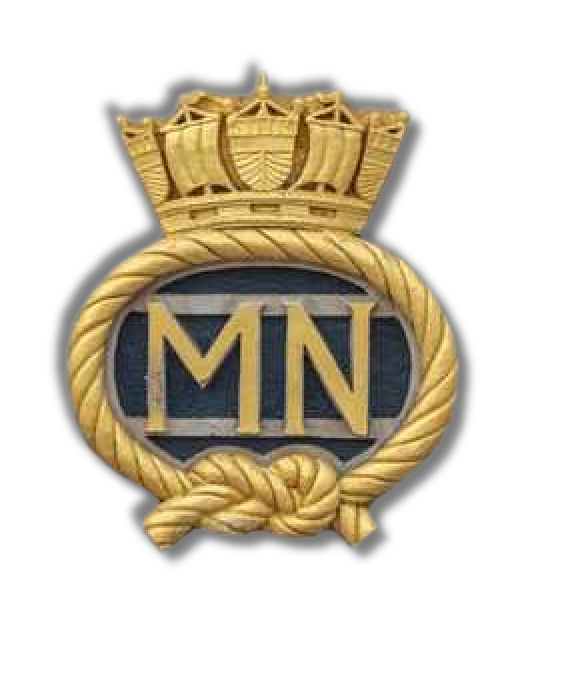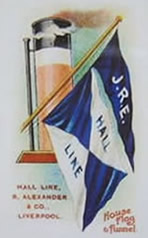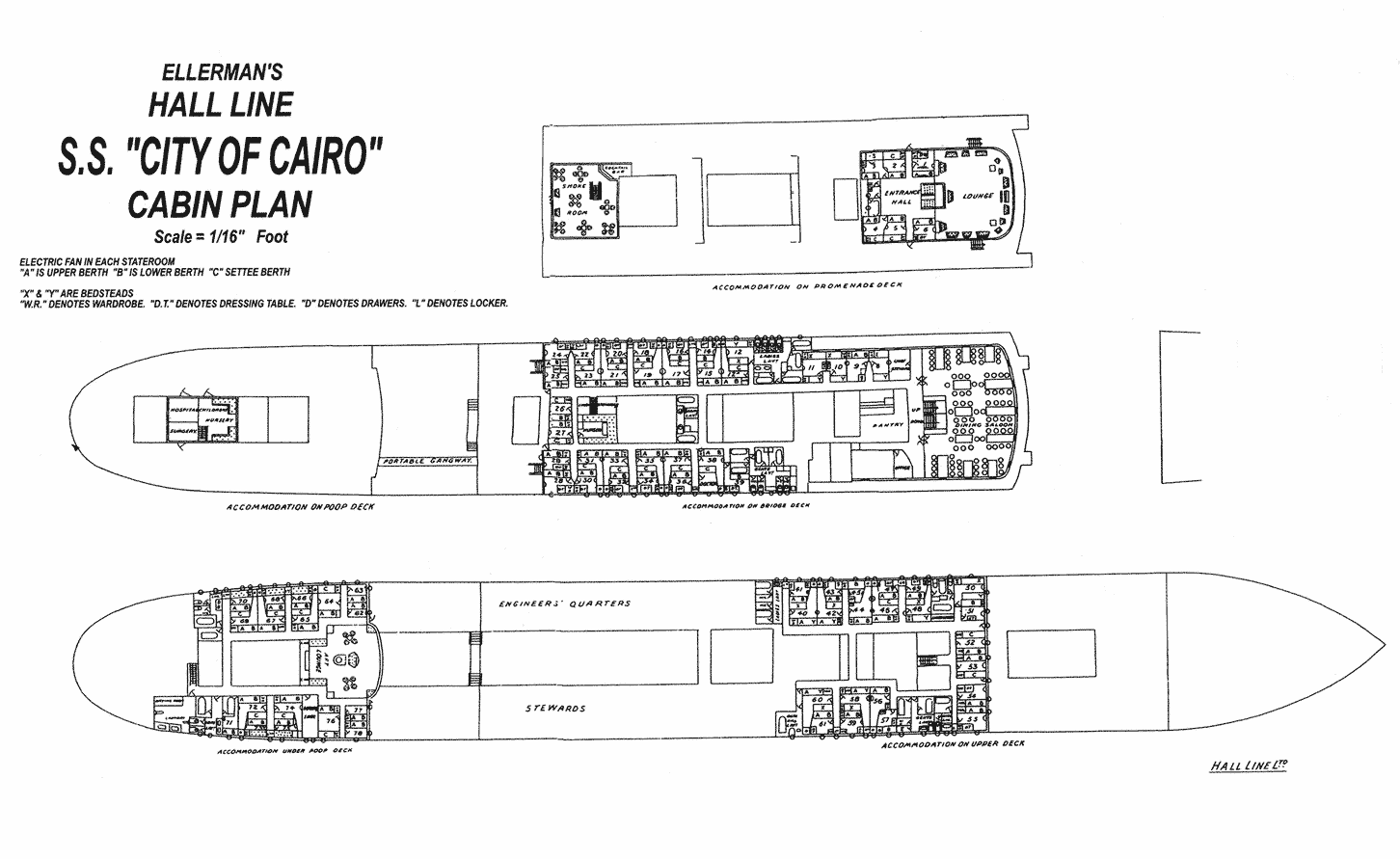Dr. Quantrill's Letter
This is a copy of a letter to the Sunday Express on the 16th September 1981 by Dr. Douglas W. Quantrill. It followed the serialisation of the sinking of the "City of Cairo" in the paper. The letter was written in reply to this letter written by Karl-Friedrich Merten the captain of U-68, the submarine that sank the ship in the South Atlantic Ocean.
The letter is courtesy of , youngest daughter of Dr. Douglas Quantrill.
Dear Sir,
As surgeon of the "City of Cairo" when that ship was torpedoed in 1942. I read with special interest Ralph Barker's account in your paper. On the whole this episode was accurately recorded and well researched.
I was also interested to read the U-Boat Commander's comments in last Sunday's issue, especially the account of the "Laconia" incident, as it was his friend who sunk that ship and it was my friend, Doctor Purslow, who was the surgeon of the "Laconia". The account of the "Laconia" tragedy was quite correct and I shall never forgive the Commander of the U.S. Liberator for ignoring the Red Cross and an international agreement, which resulted in the loss of many lives including the life of my great friend.
As regards the German captain's account of his encounter with the "City of Cairo", he is very unfair indeed. Perhaps I can remember the details better than he can.
First we did not expect an enemy submarine to pick up over two hundred survivors. Such a procedure would have been foolhardy.
As he was not sighted on the surface before he approached the lifeboats we assumed that he attacked from below. If we were wrong, is it relevant?
There were more men than women in the boats because there were far more men than women involved in the whole incident. There were also more men than women not in lifeboats after the sinking.
We saw guns on the conning tower, and they appeared to be pointing at us. If they were it was not surprising. One of us could have had a gun and been brave or impetuous enough to use it.
We were ordered "to stop rowing and keep still" and obviously we obeyed and so could not continue to pick up survivors while we were being interrogated.
To imply that our Captain was hiding in a lifeboat is a wicked accusation. He was sucked under when the ship went down and while we were being questioned he was well out of earshot, floating about in his life jacket vomiting large quantities of sea water.
It was unfortunate that we were not escorted by the Royal Navy but we all accepted that to expect escorts for every British ship was quite unrealistic. In 1942 there were just not enough escort ships available.
Finally, I was glad to know that the U-boat captain survived the formidable wartime dangers he must have encountered. In spite of everything, I shall always remember the civilised way in which he dealt with the situation and his efforts to help us on our way. I am surprised that he has jumped to such unfair conclusions.
Yours faithfully,
Dr. D.W. Quantrill Ex-Surgeon "City of Cairo".






